ADM-LAB Living labs for Adaptive delta management in Bangladesh
Published on: 08/01/2024
This blog was originally published on the website of the Dutch Research Council (NWO).
Recently, I (Digbijoy Dey) participated in a workshop on Adaptive Delta Management (ADM) in Bangladesh. The specific objective of the workshop was to shape the upcoming research programme on adaptive delta management in the context of the Bangladesh Delta Plan 2100.
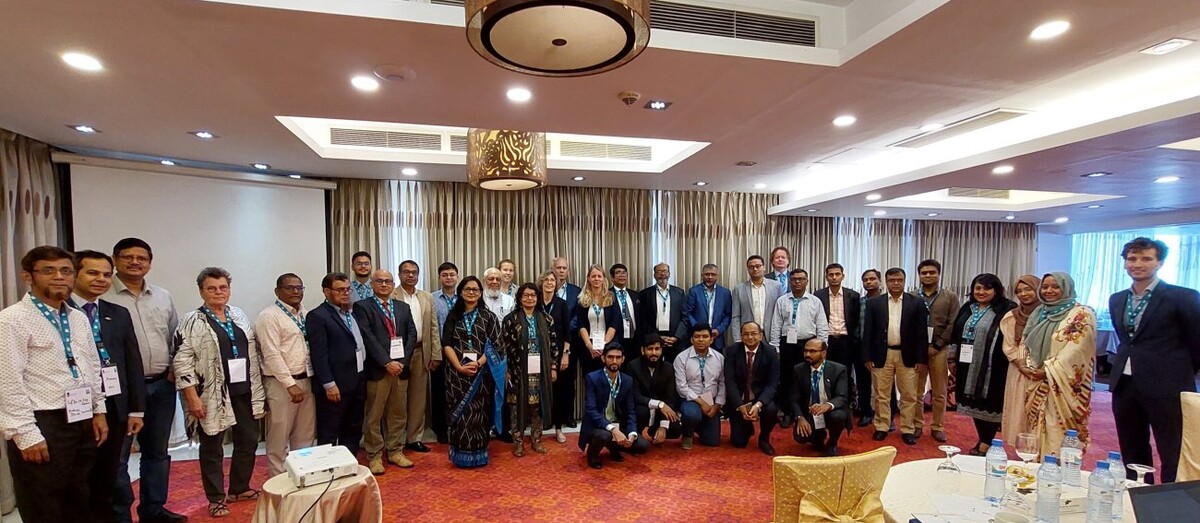
Participants at the workshop on Adaptive Delta Management (ADM) in Bangladesh, 14 November 2023. Credit: Kim van Nieuwaal / NWO
At the beginning of the workshop we reflected on the legacy of Prof. Saleemul Huq. One of the most prominent champions for climate justice, but also as an outstanding and respected scientist. He leaves an incredible legacy to us all in his body of work and spirit in our fight against climate change, and we will miss him deeply. We all took his following words to heart in the days deliberations: "Do not think of local communities in terms of groups that are vulnerable to future climate change, but of people who possess of a wealth of knowledge and experience in coping with climate change. Learn from and with them, and combine their insights with scientific perspectives." (Prof. Saleemul Huq, 2021)
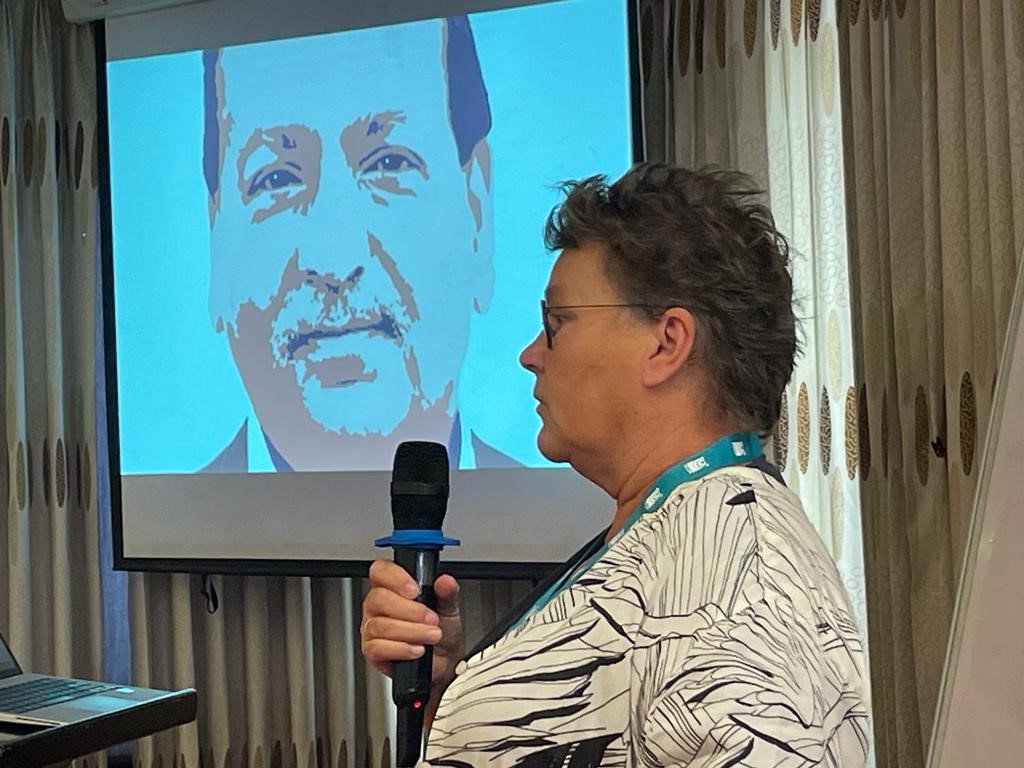
Han van Dijk, Senior Programme Offcer, NWO, reflecting on the legacy of Prof. Saleemul Huq. Credit: Kim van Nieuwaal / NWO
As someone focused on water and sanitation, Adaptive Delta Management is a broad topic for me. I attended the workshop with two motives in mind. Firstly, I saw the potential to address Water, Sanitation, and Hygiene (WASH) issues, especially water governance, within the research themes. Secondly, my intrinsic motivation was to learn from other sector experts and explore the linkages of water and sanitation with various aspects of Delta Management.
The workshop was meticulously designed to facilitate discussions and contributions from different sector experts. Following introductory speeches from Matthijs Woudstra, Deputy Ambassador at the Embassy of the Kingdom of the Netherlands, and Khan Md. Nurul Amin, Chief (Additional Secretary) of the General Economics Division (GED) of the Bangladesh Planning Commission, the workshop delved into discussions on ADM. Both government representatives expressed their keen interest and commitment to the programme, followed by presentations on living labs and the overall ADM practice in Bangladesh.
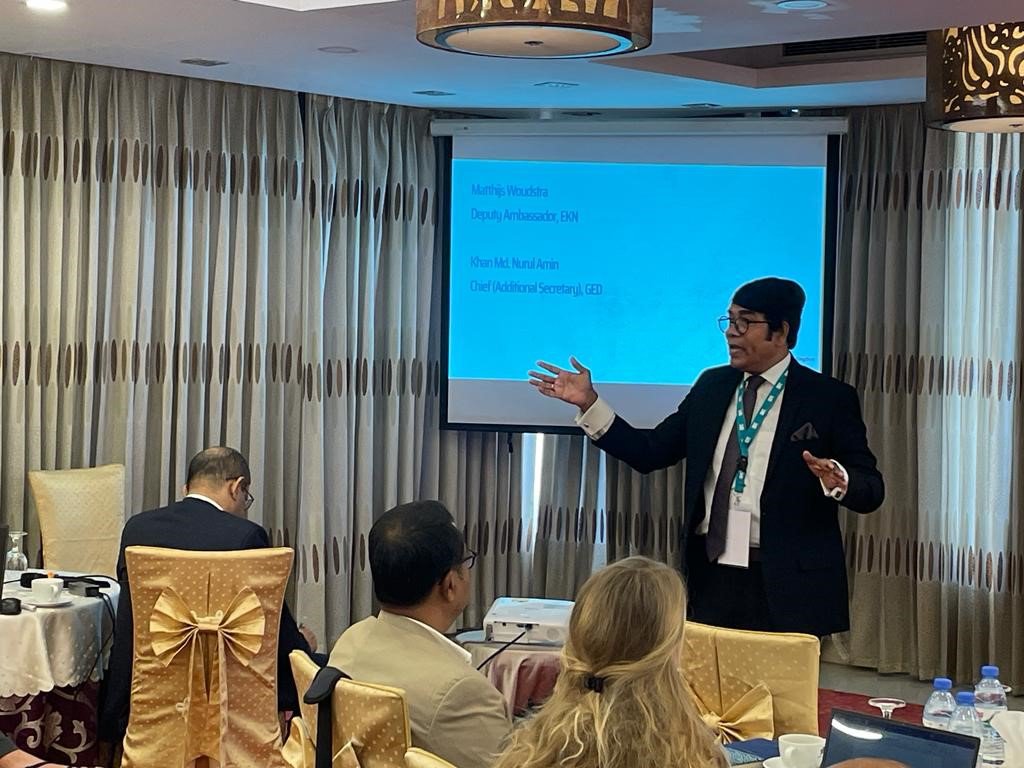
Khan Md. Nurul Amin, Chief (Additional Secretary) at GED. Credit: Kim van Nieuwaal / NWO
As explained by Han Van Dijk and Jelte Verberne, three of the research projects will be living lab projects, while the fourth will focus on knowledge management related to the three living lab research projects. A living lab is a user-centred, iterative, open-innovation space in a real-life environment, using iterative feedback processes throughout a lifecycle approach of an innovation. In other words, in the living lab research, researchers will try to seek solutions in a lifelike setting. The other research project is supposed to act like a platform which will ensure an effective functional, applied ADM research-practice-policy interface.
The rest of the workshop followed a world café format to address two key issues: 1) defining the selection criteria for the living lab research and 2) determining the possible form of the knowledge research/platform. The workshop ensured the participation of experts from diverse organizations and backgrounds, resulting in a rich and varied range of feedback. In addition to the selection criteria, the Dutch Research Council (NWO) and the Embassy of the Kingdom of the Netherlands (EKN) received some good feedback on priorities for these four researches also. The moderators of the world café, Kim Van Nieuwaal, Han Van Dijk, Neeltje Kielen and Shibly Sadik had to use all their focus on the discussion since the participants were super engaged in the discussion.
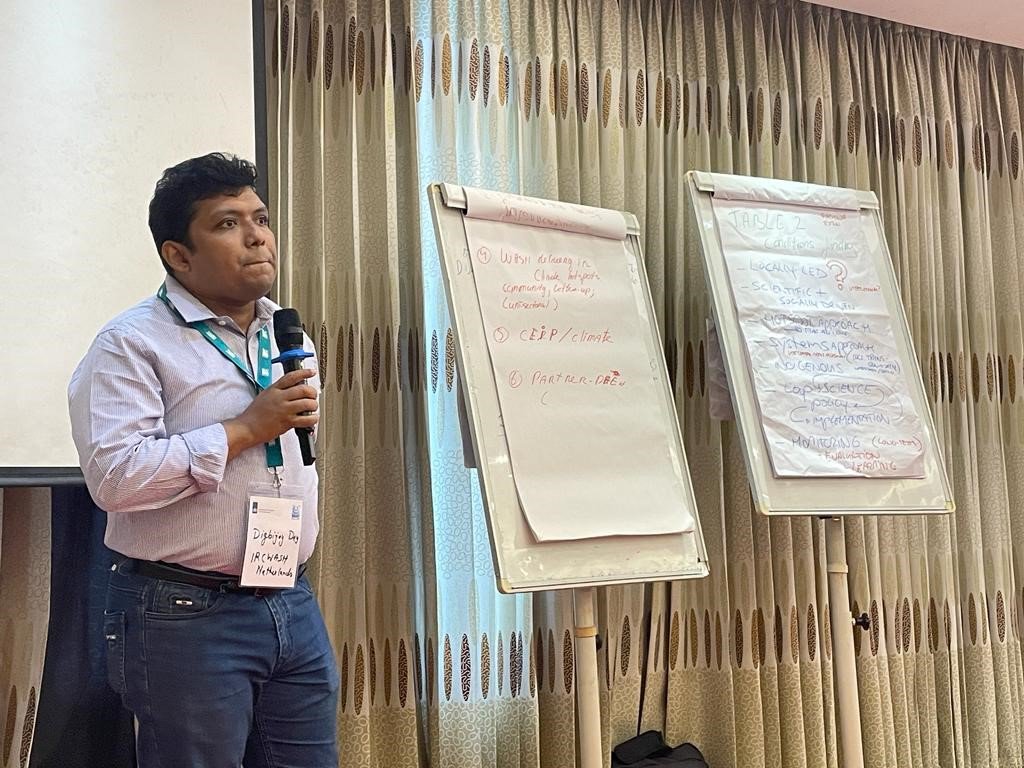
Digbijoy Dey, IRC WASH Associate. Credit: Kim van Nieuwaal / NWO
In general, participants reached a consensus that the living lab research methodologies should be sound and iterative, considering all future uncertainties. Deltas, being dynamic, require complex governance, and the research should address all potential challenges and propose a variety of measures. Scientific rigor, reproducibility of results, and alignment with ongoing works and projects were emphasized. That's why the world café has also tried to identify a number of ongoing projects that can foster these living lab researches. The participants looked at government-led mega projects like the Jamuna River Sustainable Management Project as a good platform for such research. They also considered relatively smaller NGO-led projects, such as Equitable and Sustainable WASH Service Delivery in Delta Plan Hotspots managed by BRAC and IRC. All the participants shared their observations from their expertise areas. They believe that it is not just about water resources management; all cross-cutting areas of delta management should be taken into account when selecting research topics.
The discussion on knowledge management shifted focus to the shape of the platform, required expertise, and sustainability. Participants unanimously agreed on the need for a platform acting as a science-policy-practice interface, with strong communication and advocacy skills to translate data into compelling narratives for policymakers. The discussants opined that the knowledge platform will require future funding to keep the platform live and function. Otherwise like many other research works, these studies will go into oblivion.
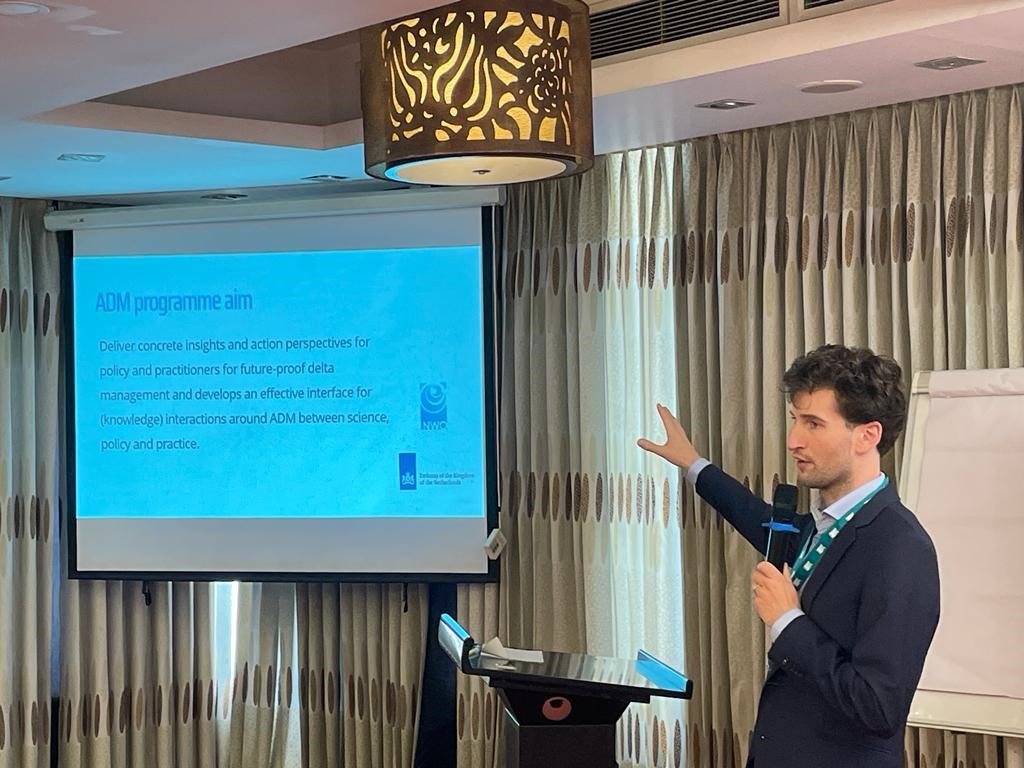
Jelte Verberne, Policy Officer, NWO. Credit: Kim van Nieuwaal / NWO
Neeltje Kielen from the Embassy of the Kingdom of the Netherlands delivered the closing remarks, marking the workshop as a preliminary engagement for sector actors in the ADM-LAB programme. Anticipation for the successful launch and progress of the program is high among sector actors and delta enthusiasts. Furthermore, we eagerly anticipate the opening of the Call for Proposals in April 2024, providing researchers with the opportunity to participate and contribute to the further development of Adaptive Delta Management in Bangladesh.
At IRC we have strong opinions and we value honest and frank discussion, so you won't be surprised to hear that not all the opinions on this site represent our official policy.